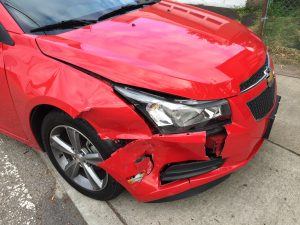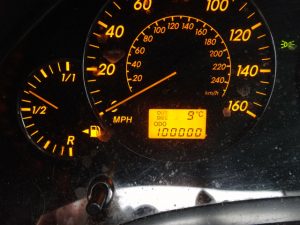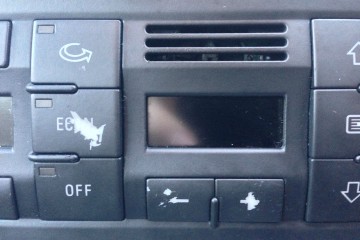
Wouldn’t it be nice if we were able to just see into the past of a used car history report before buying to determine if it has ever been in a wreck or needed major repairs? If only there were some record of all the owners, or all the places the vehicle has been registered.
By now, you’re probably screaming CARFAX!!! at your screen, and you’d be right. A Carfax used car history report is a great way to understand the backstory of almost any vehicle you can buy today, but it’s hardly the only history report available. Several other research and data companies offer similar products, some for free, but all are not created equally and not all of them are easy to read.
So, what does the used car history report tell you? How do you make sense of the information once you’ve either purchased or been given the report? There are a few key points of review on any vehicle history report that can help you decide to buy or run away screaming. We’ll explore a few of them here.
Number of Previous Owners
There is no magic here. A vehicle that has been passed around between multiple owners over the course of its life is probably one to avoid. There are a few circumstances where we can grant a pass, like a collector’s car, but in general more owners are a bad sign. These vehicles can have major mechanical or build-quality defects and may have been passed around as owners become aware of the money pit they’ve just purchased. Carfax will also tell you that multiple owners listed on a history report can, in some cases, indicate fraud.
This is why one-owner vehicles are highlighted as being special, generally commanding a higher price. In some cases, there may be exceptions when buying a used vehicle that is 4-5 years old. These vehicles may have had two owners or may have been sitting for sale for a while. This is not always a red flag, but having this information is cause for deeper investigation into the vehicle’s condition and history.
Type of Ownership
What’s the fastest car on the road? A rental car. What’s the difference between a Jeep and a rental car? There are places a Jeep won’t go.
You get the picture, and there’s a reason many industry experts will tell you to avoid buying a vehicle that was previously used as a rental or fleet vehicle: Some people don’t take care of things that don’t belong to them. It’s also easy to imagine that vehicles in corporate fleets or (obviously) a police fleet have been used to their absolute limits, which can drastically impact the vehicle’s lifespan, no matter well it was maintained.
Accidents and Damage

Police departments, repair shops, and insurance companies all submit damage reports to companies like Carfax. The level of detail available in the used car history report varies from source to source, but there is usually enough information to determine overall severity of the incident. Some small collision repair jobs like bumper replacements or a minor fender-bender may not include much detail, but some larger and more serious repairs will. Vehicles that have had major frame damage, been submerged in water, or involved in rollover accidents may have been repaired, but are not worth the potential headaches down the road.
Other Information

Used car history reports usually contain a list of other known repairs, maintenance, and model-specific information:
- Vehicle reports usually show things like regular maintenance or scheduled maintenance that was performed under warranty. The mileage of the vehicle is recorded and reported when the service is performed. Long periods of time or a large number of miles between services can be a red flag
- Recall information, sometimes service bulletins, and safety information is sometimes included in the history report. There may or may not be an indication of whether the recalls have been addressed with the specific vehicle being viewed
- Many history reports have created a metric that estimates the “price impact” of the records contained in the report. This may be a useful tool to determine how good or bad the vehicle’s backstory is, but the metrics are not official and won’t be a strong bargaining tool to reduce the price of a vehicle
There are so many different “flavors” of vehicle history report in the market today that it can be difficult to determine the value and accuracy of the information contained within them. Large and well-established companies like Carfax charge for their history reports because they are generally the most accurate and most complete records of accidents and repairs. Some companies even offer a guarantee or vehicle buy-back program if the information in their reports is found to be inaccurate and results in a bad vehicle being purchased.
Shopping around for a used car history report is much easier than shopping around for a car, and much cheaper, too. These reports are also not to be taken as the final word on any purchase and should only be used as a decision-support tool. An inspection by a trusted mechanic or repair shop can yield much more in-depth information and provide the peace of mind that buyers need when shopping for a used vehicle.
(Article continues below)




